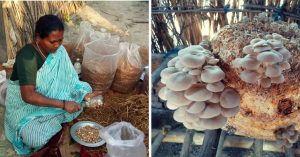TBI Blogs: Here’s How You Can Help an Underprivileged Person Fight the Bitter Chill This Winter
Winter can be a desperate struggle for survival for the underprivileged unfortunate enough to live without shelter or proper woolens. Goonj’s annual winter campaign ‘Odha Do Zindagi’ aims to ease the suffering of such people by involving community members and institutions.
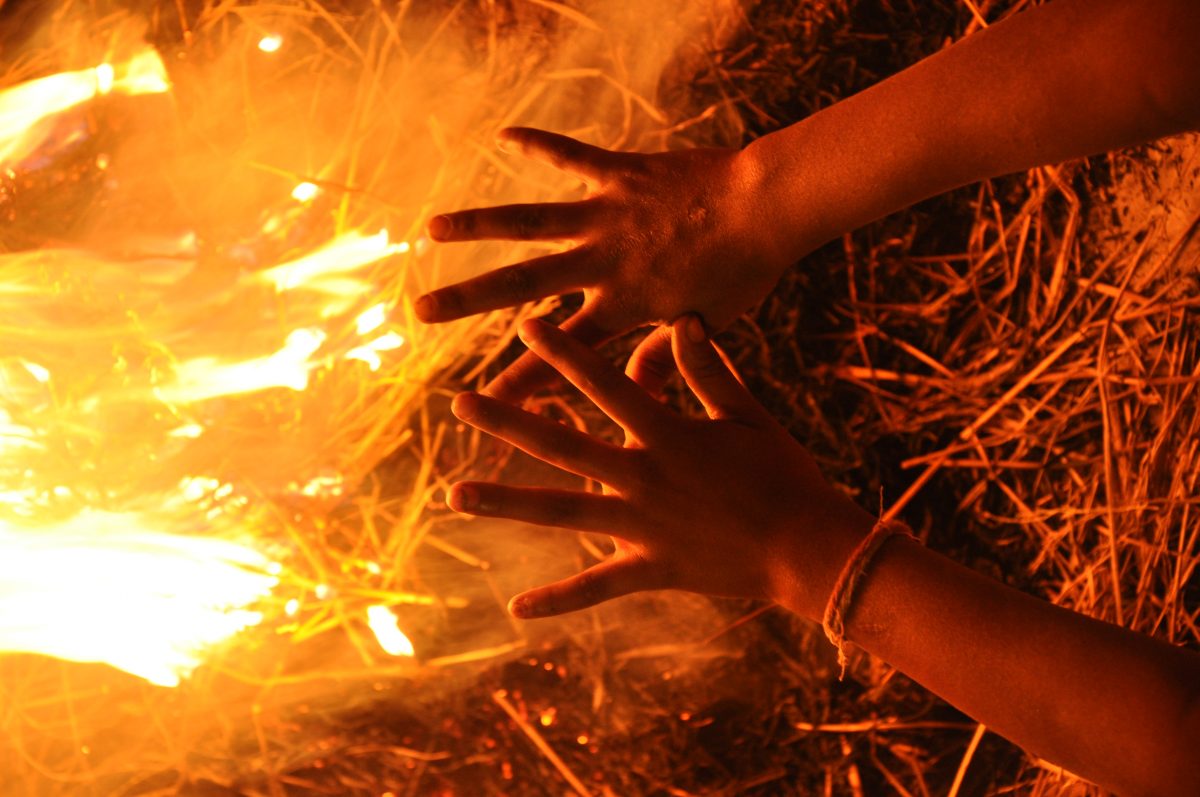
Winter can be a desperate struggle for survival for the underprivileged unfortunate enough to live without shelter or proper woolens. Goonj’s annual winter campaign ‘Odha Do Zindagi’ aims to ease the suffering of such people by involving community members and institutions.
In September 2014, the United Nations (UN) launched 17 Sustainable Development Goals. One goal charted out by the UN says, “By 2030, build the resilience of the poor and those in vulnerable situations, and reduce their exposure and vulnerability to climate-related extreme events, and other economic, social, and environmental shocks and disasters.” So what are these “extreme events, shocks, and disasters”? Wouldn’t spending a winter at 3-4° temperature, without woolens or enough cloth, count as extreme? The unfortunate fact is that every winter, millions go through this preventable disaster, but hardly anybody pays any attention to it.
When the temperature falls to even 8-10°, for the homeless without adequate clothing, it’s a struggle for survival. In the words of Goonj’s Founder, Anshu Gupta, “Development is when you move from zero to ten. But when you move from minus to zero, that’s not development, that’s survival. Goonj mostly works on survival, on the most basic needs of the people. ” What are these basic needs? We all know them—“food, shelter, and clothing”.
Thus, clothing is not just about looking good; it’s a means of survival first, especially in winters.
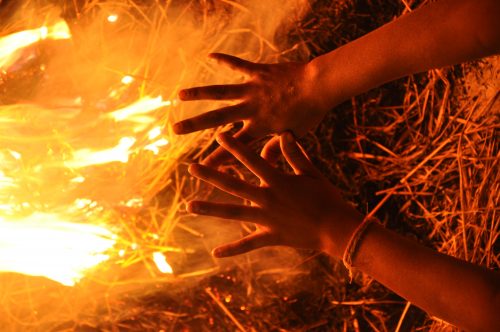
But somehow we all take clothing for granted. We assume that since all of us have many clothes, there is adequate cloth. This is probably why we don’t see winters as a disaster. Fact is, without adequate clothing, winter is an annual torture for many that lasts for months at end. The world invests in large-scale development programs, but we also need to look towards building the resilience of the poor to winter with some warm clothes. After all, the cold doesn’t kill people; lack of clothing does.
Binod Da, from Parashia village in Medinipur in West Bengal, candidly shares, “In winters, when a child cried out, his mother would give him some local liquor and make him sleep. This has been going on for years. This time the situation is different though.” He is alluding to the woolens that are now reaching communities like his through efforts of a programme run by Goonj.
More than two decades ago, the seed of Goonj was sown by a shocking story of cold. “When I feel cold, I hug the dead body and sleep. It doesn’t turn around, it doesn’t bother me,” said Kaneez Bano, a 6-year-old living on the roads of Delhi, to Anshu Gupta, Founder, Goonj.
Kaneez’s father made a living by picking up and cremating abandoned dead bodies from the roads.
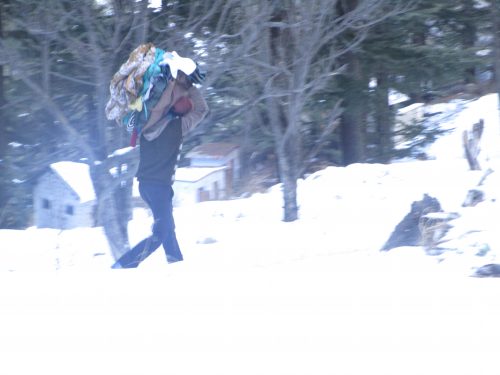
In Khalwa block of Khandwa district, Madhya Pradesh, Sagaun trees (teak, Indian oak) are spread across a large forest area. The villages inside these forests become very cold in the winters. Rajesh, from Booti village in this area, shares, “During winters, we have to water our farms even at night, since electricity comes in shifts. It was unbearable to stand in knee deep water in such cold. After we were provided the woolens, it was such a relief.” These farmers also have to keep a watch all night to prevent thieves and wild animals like wild boars from destroying their crops. As a result they would often fall sick.
In Khalwa, the nearest market is 40 km. away while the district market is 80 km. away. One had to spend between Rs. 40 to Rs. 100 just to reach the market. The bad quality woolens available nearby are 4x the price of block and district markets. Typically, villagers would either end up having no woolens, or buying woolens on loan. Goonj’s partner organization Spandan shares that in this area winter nights are so cold that people wake up at 3 o’clock in the night to light firewood. This is common across many far-flung areas of north India as well. There are many negative side effects of this practice. Cutting down of jungles for firewood decreases the community’s resilience to other disasters. The fire makes the homes, built close together, more vulnerable to fire accidents. Lastly, since people miss out on proper sleep through the night, it hampers work the next day. All of this can be avoided with just some appropriate warm clothes!
Through Goonj’s Cloth for Work (CFW) initiative, the villagers of Khalwa, and many other such villages across India, work on some of their own community issues, and earn very good quality winter kits for their families in exchange. Now, the villagers of Booti even carry their warm clothes with them when they travel to the cities for work.
In the highest and coldest parts of North India, like Uttarakhand, which face quite intense winters, winter kits—a comprehensive package of warm clothes and sujni (mats) for the entire family’s needs—is a huge help.
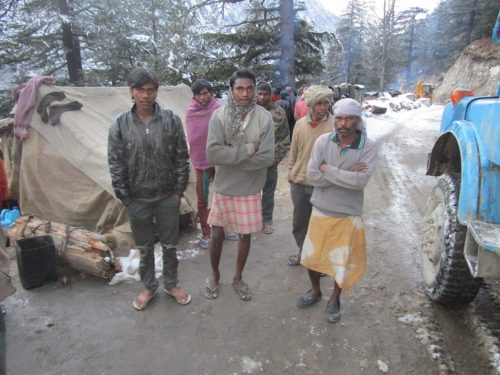
Every year, thousands of winter kits reach communities in Jammu & Kashmir, Uttarakhand, Bihar, Odisha, and West Bengal. Similarly, in cities like Delhi, warm clothes help the homeless, orphans, children, residents of night shelters/Rain Baseras, etc., apart from the unfortunate homeless souls living on the roadside in winter nights. This winter, Goonj has again launched its annual winter campaign ‘Odha Do Zindagi’ to provide woolens and blankets across India.
When we take out the woolens lying unused in the back of our storage closet, we can contribute to this work. Each of these woolens can break the cycle of struggle for someone, and build a resource for him/her for many years to come. The warmth that we cherish and enjoy in winters – whether it’s the early morning warmth of a quilt or the tug on a cosy sweater or a shawl – is a feeling that can only be felt and experienced. No words can adequately describe it. When you give your woolen/shawl/blanket to keep another person warm, you pass on this sharing of a common humane feeling as a gift of life. It’s the most beautiful, most meaningful, most life-giving gift.
To find out more and contribute to the campaign, visit the campaign’s page on Ketto.
Like this story? Or have something to share? Write to us: [email protected], or connect with us on Facebook and Twitter.
NEW: Click here to get positive news on WhatsApp!
This story made me
- 97
- 121
- 89
- 167
Tell Us More
We bring stories straight from the heart of India, to inspire millions and create a wave of impact. Our positive movement is growing bigger everyday, and we would love for you to join it.
Please contribute whatever you can, every little penny helps our team in bringing you more stories that support dreams and spread hope.






